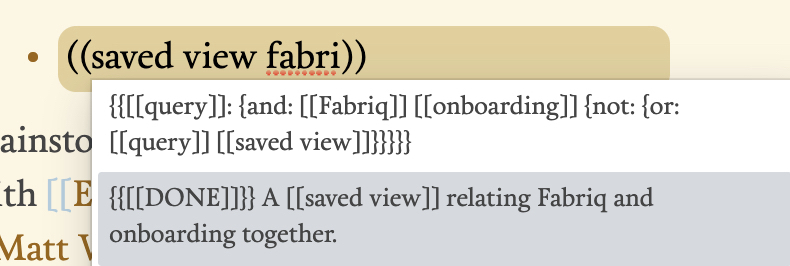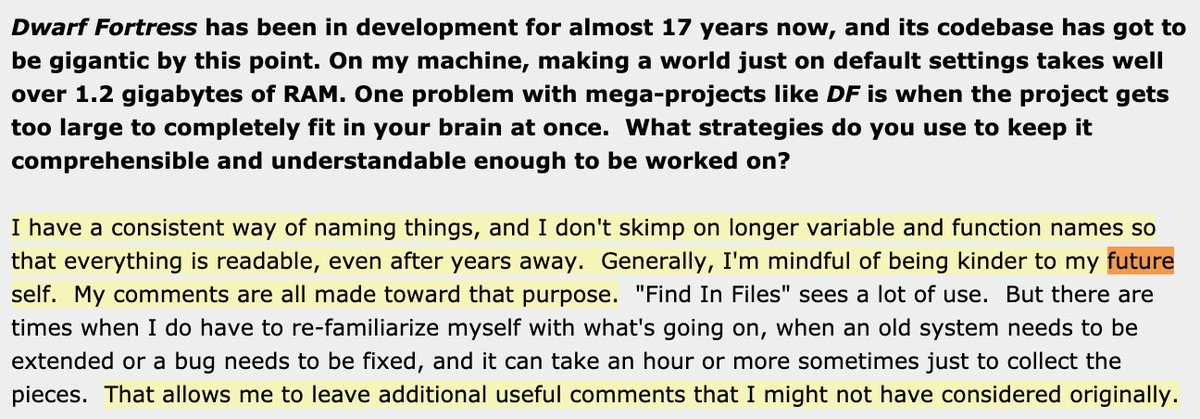How does [[onboarding]] relate to [[search behavior]]? What are {[[GuidedTrack]] [[user goal]]s}, and how does that relate to their {[[first ten minutes]] or [[continuous onboarding]]}? What [[user feedback]] have I seen from [[GuidedTrack]] users?
Fruitful searches through my linked references get saved in the form of queries.




